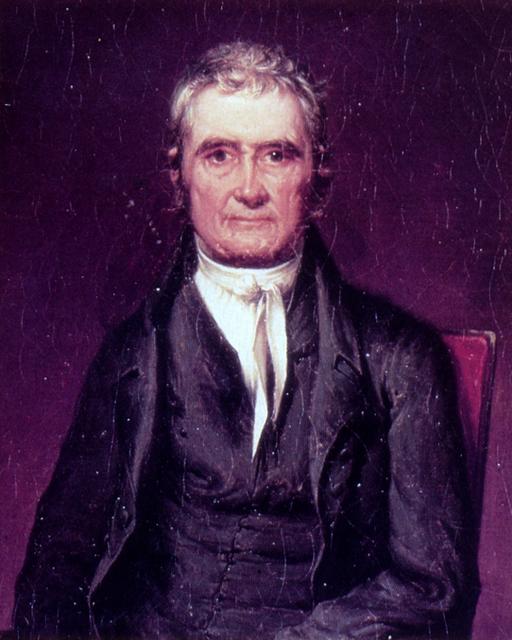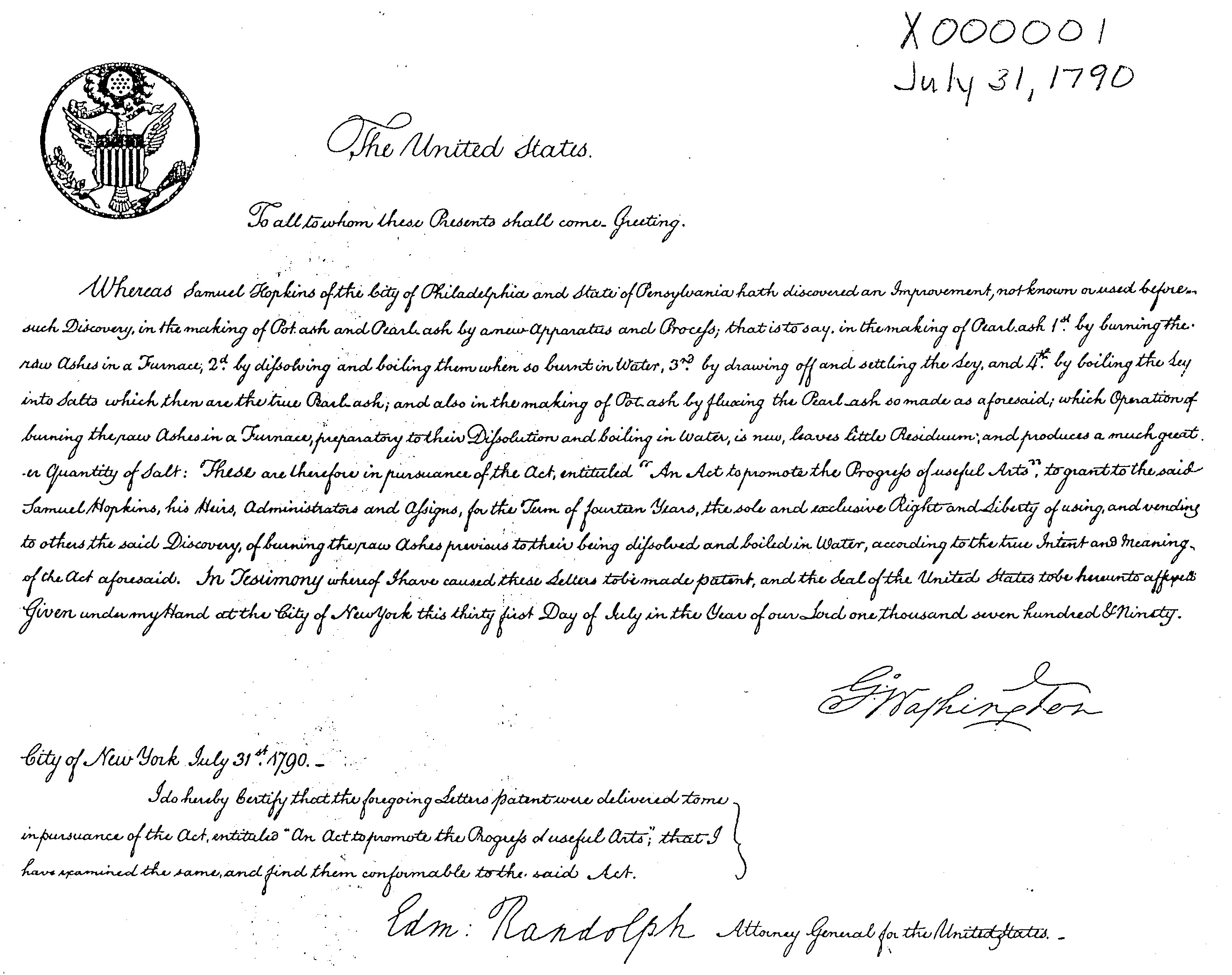|
Patent Act Of 1922
The Patent Act of 1922 began circulating general information about how to acquire a patent to the general public as a means of spurring private invention initiatives. The law also enlarged the jurisdiction of the Court of Customs and Patent Appeals to include appeals on questions of law from Tariff Commission findings in proceedings relating to unfair practices in the import trade. The Commissioner of Patents was given the power to require patent agents and patent attorneys to have certain qualifications before being allowed to practice before the Patent Office. He was also authorized to suspend or disbar such persons for cause. The salaries of the Commissioner and other officers of the Patent Office were increased, and 49 more positions were created on the technical staff. The fee for filing a patent application was increased from $15 to $20. The office of Patent Solicitor A patent is a type of intellectual property that gives its owner the legal right to excl ... [...More Info...] [...Related Items...] OR: [Wikipedia] [Google] [Baidu] |
Patent
A patent is a type of intellectual property that gives its owner the legal right to exclude others from making, using, or selling an invention for a limited period of time in exchange for publishing an sufficiency of disclosure, enabling disclosure of the invention."A patent is not the grant of a right to make or use or sell. It does not, directly or indirectly, imply any such right. It grants only the right to exclude others. The supposition that a right to make is created by the patent grant is obviously inconsistent with the established distinctions between generic and specific patents, and with the well-known fact that a very considerable portion of the patents granted are in a field covered by a former relatively generic or basic patent, are tributary to such earlier patent, and cannot be practiced unless by license thereunder." – ''Herman v. Youngstown Car Mfg. Co.'', 191 F. 579, 584–85, 112 CCA 185 (6th Cir. 1911) In most countries, patent rights fall under private la ... [...More Info...] [...Related Items...] OR: [Wikipedia] [Google] [Baidu] |
Court Of Customs And Patent Appeals
The United States Court of Customs and Patent Appeals (CCPA) was a United States federal court which existed from 1909 to 1982 and had jurisdiction over certain types of civil disputes. History The CCPA began as the United States Court of Customs Appeals, created by the Payne–Aldrich Tariff Act of August 5, 1909. It commenced operations the following year, on April 22, 1910. Five judges for the new court were appointed by President Taft: Robert Morris Montgomery, William H. Hunt, James Francis Smith, Orion M. Barber and Marion De Vries. The jurisdiction was originally appeals from decisions of the Board of General Appraisers, and no further appellate review was permitted. This changed in 1914, when writ of certiorari by the United States Supreme Court The Supreme Court of the United States (SCOTUS) is the highest court in the federal judiciary of the United States. It has ultimate appellate jurisdiction over all U.S. federal court cases, and over state court cas ... [...More Info...] [...Related Items...] OR: [Wikipedia] [Google] [Baidu] |
List Of People Who Have Headed The United States Patent Office
Following is a list of persons who have headed the United States Patent Office. The title associated with this function has changed over time, from Superintendent of Patents to Commissioner of Patents to Undersecretary of Commerce for Intellectual Property. The duties of the office have also evolved significantly, including coming to encompass the supervision of trademark issuance as well as that of patents. Notes See also *Rufus Randolph Rhodes, Commissioner of Confederate Patent Office, Confederate States Patents from 1861 to 1965 References {{reflist Lists of office-holders in the United States Patent law lists, United States Patent Office United States Department of Commerce officials United States intellectual property law Under Secretaries of Commerce for Intellectual Property, United States Commissioners of Patents United States superintendents of patents ... [...More Info...] [...Related Items...] OR: [Wikipedia] [Google] [Baidu] |
Patent Agent
A patent attorney is an attorney who has the specialized qualifications necessary for representing clients in obtaining patents and acting in all matters and procedures relating to patent law and practice, such as filing patent applications and oppositions to granted patents. Terminology The term "patent attorney" is used differently in different countries and thus may or may not require the same legal qualifications as a general legal practitioner. The titles patent agent and patent lawyer are also used in some jurisdictions. In some jurisdictions, the terms are interchangeable; in others, the latter is used only if the person is qualified as a lawyer. The World Intellectual Property Organization (WIPO) and the International Federation of Intellectual Property Attorneys (FICPI) propose since 2022 a Patent Drafting Training Program to enhance the knowledge and skills of professionals, such as patent agents, who wish to strengthen their patent drafting skills. Role A study ana ... [...More Info...] [...Related Items...] OR: [Wikipedia] [Google] [Baidu] |
United States Patent And Trademark Office
The United States Patent and Trademark Office (USPTO) is an List of federal agencies in the United States, agency in the United States Department of Commerce, U.S. Department of Commerce that serves as the national patent office and trademark registration authority for the United States. The USPTO's headquarters are in Alexandria, Virginia, after a 2005 move from the Crystal City, Virginia, Crystal City area of neighboring Arlington County, Virginia, Arlington, Virginia. The USPTO is "unique among federal agencies because it operates solely on fees collected by its users, and not on taxpayer dollars". Its "operating structure is like a business in that it receives requests for services—applications for patents and trademark registrations—and charges fees projected to cover the cost of performing the services [it] provide[s]". The office is headed by the Under Secretary of Commerce for Intellectual Property, under secretary of commerce for intellectual property and directo ... [...More Info...] [...Related Items...] OR: [Wikipedia] [Google] [Baidu] |
Patent Application
A patent application is a request pending at a patent office for the grant of a patent for an invention described in the patent specification and a set of one or more claim (patent), claims stated in a formal document, including necessary official forms and related correspondence. It is the combination of the document and its processing within the administrative and legal framework of the patent office. To obtain the grant of a patent, a person, either legal or natural, must file an application at a patent office with the jurisdiction to grant a patent in the geographic area over which coverage is required. This is often a national patent office, but may be a regional body, such as the European Patent Office. Once the patent specification complies with the laws of the office concerned, a patent may be granted for the invention described and claimed by the specification. The process of "negotiating" or "arguing" with a patent office for the grant of a patent, and interaction with ... [...More Info...] [...Related Items...] OR: [Wikipedia] [Google] [Baidu] |
Patent Solicitor
A patent is a type of intellectual property that gives its owner the legal right to exclude others from making, using, or selling an invention for a limited period of time in exchange for publishing an enabling disclosure of the invention."A patent is not the grant of a right to make or use or sell. It does not, directly or indirectly, imply any such right. It grants only the right to exclude others. The supposition that a right to make is created by the patent grant is obviously inconsistent with the established distinctions between generic and specific patents, and with the well-known fact that a very considerable portion of the patents granted are in a field covered by a former relatively generic or basic patent, are tributary to such earlier patent, and cannot be practiced unless by license thereunder." – ''Herman v. Youngstown Car Mfg. Co.'', 191 F. 579, 584–85, 112 CCA 185 (6th Cir. 1911) In most countries, patent rights fall under private law and the patent holder mu ... [...More Info...] [...Related Items...] OR: [Wikipedia] [Google] [Baidu] |
1922 In American Law
Nineteen or 19 may refer to: * 19 (number) * One of the years 19 BC, AD 19, 1919, 2019 Films * ''19'' (film), a 2001 Japanese film * ''Nineteen'' (1987 film), a 1987 science fiction film * '' 19-Nineteen'', a 2009 South Korean film * '' Diciannove'', a 2024 Italian drama film informally referred to as "Nineteen" in some sources Science * Potassium, an alkali metal * 19 Fortuna, an asteroid Music * 19 (band), a Japanese pop music duo Albums * ''19'' (Adele album), 2008 * ''19'', a 2003 album by Alsou * ''19'', a 2006 album by Evan Yo * ''19'', a 2018 album by MHD * ''19'', one half of the double album '' 63/19'' by Kool A.D. * ''Number Nineteen'', a 1971 album by American jazz pianist Mal Waldron * ''XIX'' (EP), a 2019 EP by 1the9 Songs * "19" (song), a 1985 song by British musician Paul Hardcastle * "Stone in Focus", officially "#19", a composition by Aphex Twin * "Nineteen", a song from the 1992 album ''Refugee'' by Bad4Good * "Nineteen", a song from the ... [...More Info...] [...Related Items...] OR: [Wikipedia] [Google] [Baidu] |




